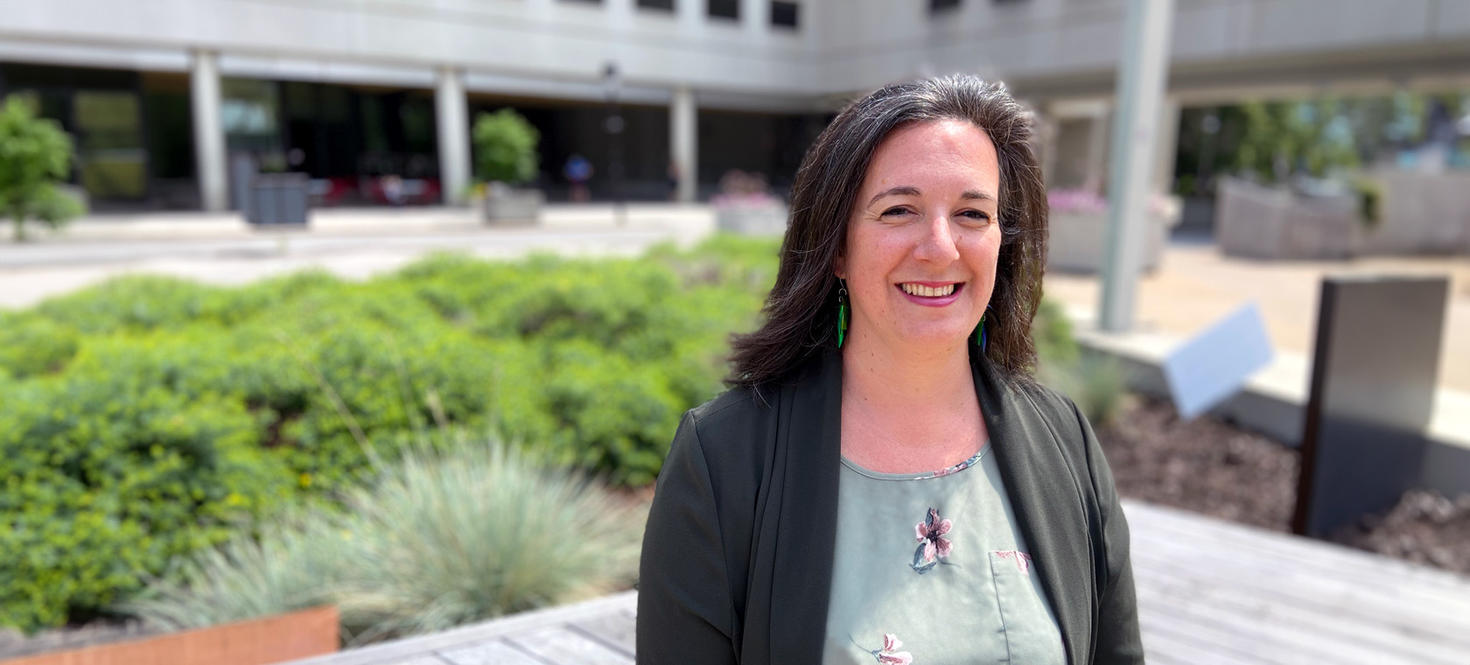“I was blocked, and I didn’t really know why,” says new Faculty of Education professor Claude Quevillon Lacasse about the challenges she faced trying to learn a new language, English. As a francophone growing up in a predominantly anglophone Montreal neighborhood, she remembers struggling throughout elementary and secondary school. She even attended English summer camps, but made little progress.
When it came time for college, she said to herself, “That’s it — I’m going to rectify this learning gap once and for all.” Leaning into the discomfort, she enrolled in an English CEGEP. Her decision paid off. She didn’t just learn to speak English — she excelled.
Diving into plurilingualism
Starting in high school, she added Spanish to her linguistic (and cultural) repertoire. Immersing herself in the language and diversity of Montreal’s Latin-American community was an “Aha!” moment for Quevillon Lacasse. “It was when I started to learn Spanish that I more clearly understood my relationship to English as a second language. It was the moment I no longer saw it as something exterior to me, and that it could become part of me and my identity.” The adventure was a stepping stone to a career as a secondary school teacher, university lecturer, and education consultant, and now as a university professor.
From her experiences teaching French as a second language, English as a second language, French as a language of schooling, and Spanish as a foreign language, she developed a passion for research on language teaching in general, and plurilingualism—a broad field of study that considers, among other things, the language interconnections within individuals and society.
“During my graduate studies, I developed a deep desire to explore what inspires students to want to learn another language,” she says. “Why do some students experience breakthroughs and others remain stuck? What could I do to help them overcome their learning obstacles?”
Linguistic diversity brings opportunities
Quevillon Lacasse’s interest in teaching and learning of two or more languages in culturally-diverse settings is central to her research. She seeks to identify the factors involved in the development of plurilingual language competencies. With monolingualism on the decline in most parts of the world, partly due to immigration waves, students often arrive in the classroom with multiple, complex and dynamic linguistic and cultural backgrounds. This diversity can pose a challenge for educators, but can also become an opportunity for deeper, more meaningful learning.
___________________
Bio
Claude Quevillon Lacassecompleted a master’s in linguistics, with a minor in language teaching and learning, and a PhD in education at the Université du Québec à Montréal (UQAM). She was a lecturer in the teacher education programs at UQAM and the Université de Montréal, as well as an FSL teacher for newcomers at Concordia University. She was a collaborator for the Quebec Ministry of Education and Télé-Québec en classe, and is the current president of the Association québécoise pour l’enseignement du français langue seconde. Her research focuses on metalinguistic awareness in language learning, teaching grammar and writing, crosslinguistic pedagogy and professional development for teachers. Her recent publications include: La conscience translinguistique des futurs enseignants de français de la Saskatchewan : le cas des déterminants possessifs (2021); Projet Transfert ELA-FLS : Projet de développement professionnel d’enseignants pour encourager les élèves à transférer leurs apprentissages langagiers (2020); and Teaching syntax and punctuation in French L1: How the notion of sentence was operationalized in innovative didactic devices (2020).
